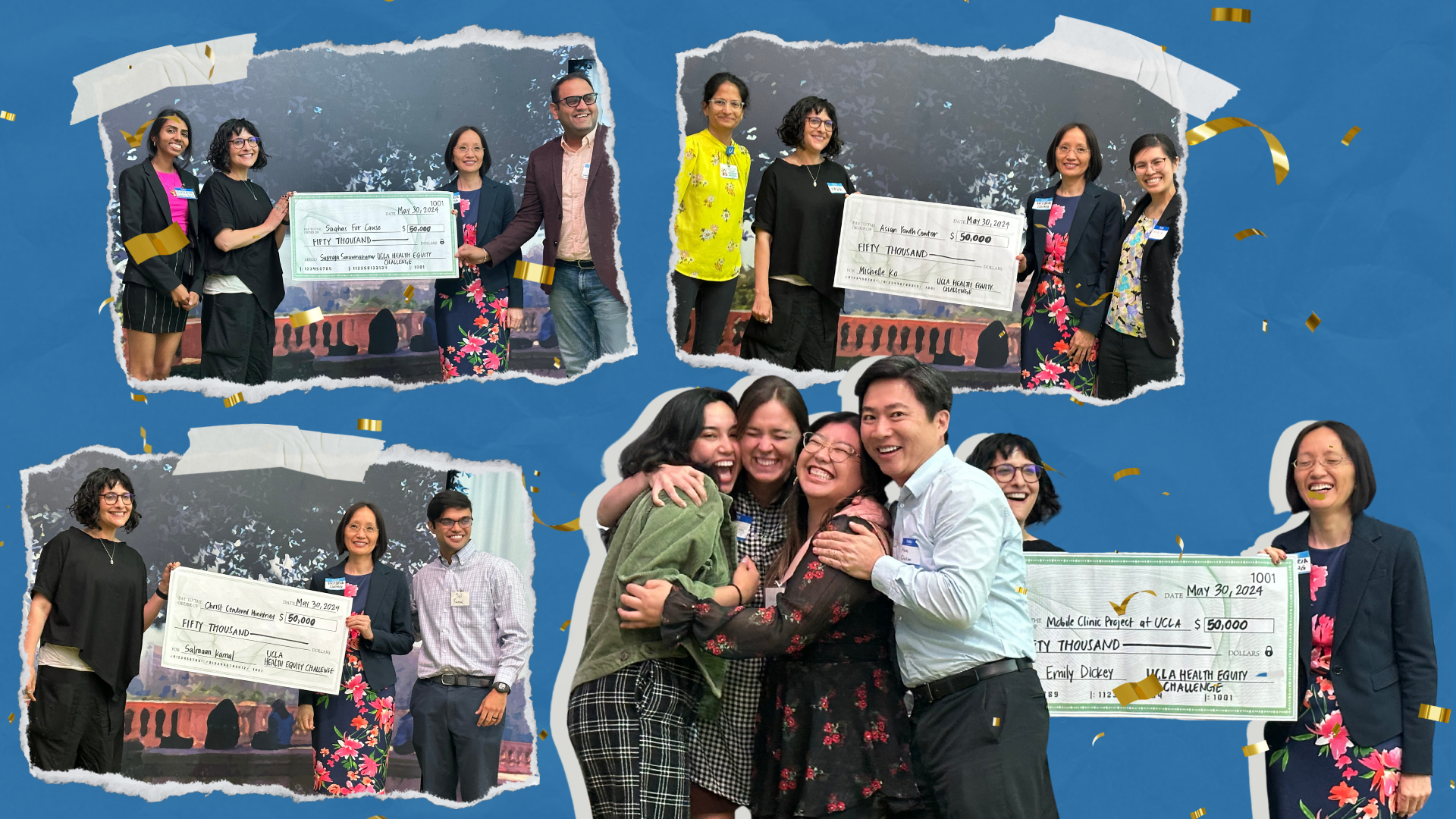The winning projects in the Health Equity Challenge support Black male trauma recovery, foster youth resilience, autism-friendly emergency departments, and accessible playgrounds.
Hi, I’m Amani. I’m a third-year medical student at UCLA, a former high school science teacher, a published short story writer, and (hopefully 😊) a future neurosurgeon.
When I first saw Brea at the LA animal shelter, her white-gray checkered fur was overgrown and severely matted.
I find myself standing on a winding path, fraught with the fears and uncertainties that have long shadowed the dreams of my community.
For many children of low-income, non-English-speaking immigrants, acting as a translator is a rite of passage.
I once worked with a girl whose silence was her superpower.
“The wound is the place where the light enters you.” — Rumi I first heard these words in my medical anthropology class during my senior year of college, a time when I was struggling to reconcile my academics with the mental health challenges that were quietly shaping my everyday life.
If you grew up in a multigenerational household, chances are you have been told to “respect your elders,” help around the house, or to look after your grandparents when they’re not feeling well.
Drenched in sweat, this autistic patient kept screaming “no, no.” She was strapped to the stretcher, staring at a ceiling vent in the emergency room.
The past few years have reminded us, more than ever, of the collective and individual experience of grief, from the losses brought on by the COVID-19 pandemic, to the trauma of wars, and the displacement caused by climate disasters.
Childhood is often defined by moments of play — going down a slide, hanging from monkey bars, the sound of laughter during a game of tag.
“That voicing our struggles is not a sign of weakness but rather a path to healing. I am often afraid to be vulnerable, but this program showed me that sharing my vulnerabilities can not only help me come to terms with my own pain but also deeply connect with others.”
For as long as I can remember, my parents instilled in me the belief that education — and the knowledge it brings — is priceless. It pushed me to soak up as much information as I could in class, and I came to feel deep respect and admiration for the educators who supported my growth.
My journey into public health began as an undergraduate, the moment I stepped into my first Introduction to Public Health class.
During a virtual focus group with Parkinson’s Community Los Angeles (PCLA), I watched as participants leaned closer to their screens — not out of obligation, but out of hope.
My summer memories growing up don’t include trips to Disneyland or family vacations.
Fifteen finalists announced for the 2025 UCLA Health Equity Challenge
Up to $200,000 will be awarded to community organizations to implement student projects.
The winning projects in the Health Equity Challenge support housing, mental health, and treating people experiencing homelessness.
As many as 50% of blind high school students drop out of high school and COVID only exacerbated this problem.



















